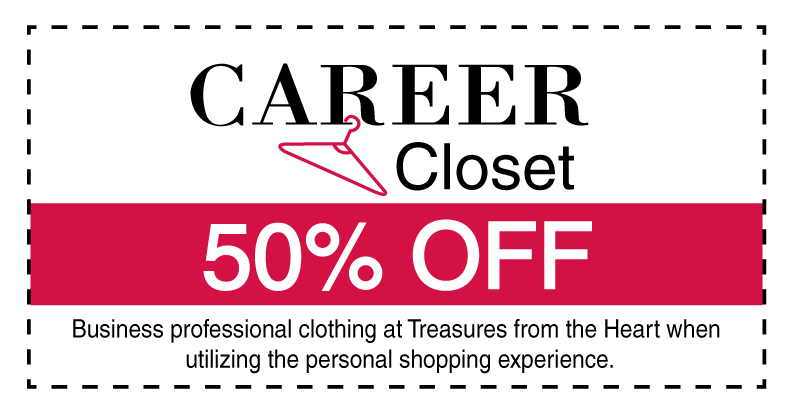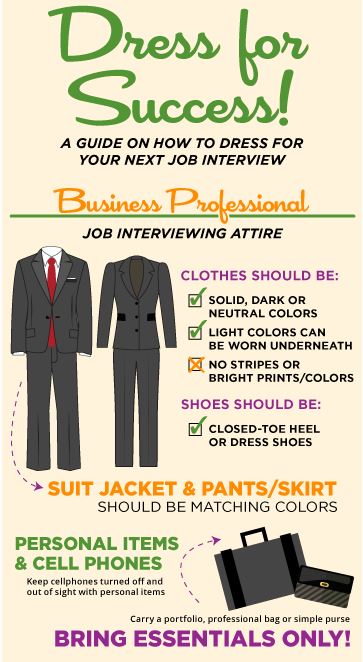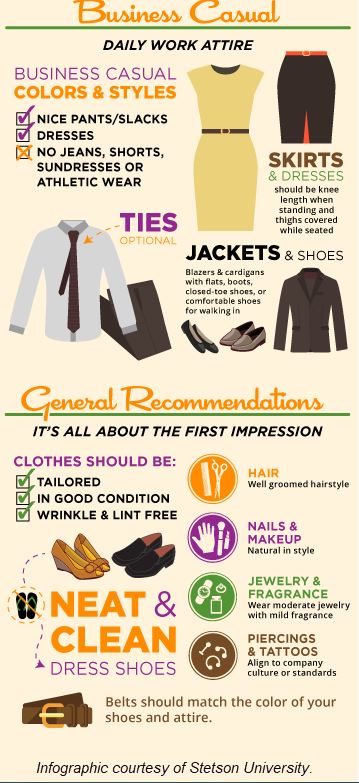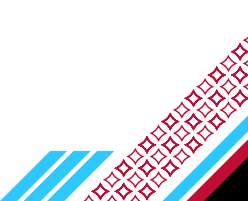Nail Your Interview
An interview with a prospective employer is your time to shine! It's important to put your best foot forward and be prepared for the process. Below we have compiled some best practices and handy tips to help you not just prepare for any interview but how to both ace the meeting and respond professionally afterwards.

Prior to the Interview
Whether it's researching the employer, doing background on salary information or putting together the perfect outfit, we've come up with some tips and tricks to help you be fully prepared for your first impression.
The best thing you can do prior to speaking with an employer is to gain as much information about the company as possible. By doing this, you'll be well-informed and able to easily converse and ask questions about the organization, while also showing you have a strong interest in their products, services, values and purpose.
Basic Items to Research:
- Primary mission or purpose of the organization
- Major competitors
- Organizational culture (management style, work environment, structure)
- Principal services and products
Resources for Researching Employers:
- Visit the company's website
- GoinGlobal (Log into Handshake, hover over the "Career Center" tab and select "Resources" from the dropdown)
- Better Business Bureau (Check the status of employers and their standing with clients)
- Reference USA (Log into Handshake, hover over the "Career Center" tab and select "Resources" from the dropdown)
The topic of salary should be initiated by the employer and typically occurs after an initial interview or during a second or third interview. It is wise to research salaries prior to interviewing to be prepared if this question is brought up earlier than the second stage. Utilize resources such as Glassdoor.com, Occupational Outlook Handbook and Salary.com to gain a better understanding of salary ranges that fit the position and level for which you are applying. Demonstrate an understanding of the position and industry with salary research and tie that to why you and the experience you bring is worth the salary range you seek. Always remember to offer a salary range (i.e. $35,000 - $42,000) instead of a solid number. This offers more flexibility in negotiation. You also need to remember to gain an understanding of the whole offer and not focus solely on the salary.
As a general rule, dress a level above what you believe the company culture may be. There are three general dress categories including business professional, business casual and casual. Most commonly we recommend you dress in business professional for interviews.
Career Closet
UW-River Falls Career Services and Treasures from the Heart have partnered to provide gently used professional clothing to current UWRF students at a deep discount. Start by scheduling a free appointment with a personal shopper from Treasures from the Heart and they will help identify professional clothing to fit your needs. To learn more, please review the brochure or call Treasures from the Heart at 715-425-9771.
- Ask about the interview type (group, panel, one-on-one, etc.) and for the names/job titles of the interviewer(s) if not provided with this information. More information regarding interview types can be found in the Interviewing Techniques handout. Knowing the names and job titles of the interviewers will allow you to prepare appropriate questions.
- Know your skills, including strengths and weaknesses, and be prepared to respond to related questions with examples.
- Practice answering interview questions with impact by using the STAR Technique outlined in the Interviewing Techniques handout linked above.
- Use Big Interview (information found below) to practice interview questions and receive feedback.
- Schedule a mock interview appointment with a UWRF Career Counselor.
- Prepare questions to ask the employer to show you are interested in the position and organization.
- Organize and prepare your padfolio.
- If an assessment is included as part of of the interview process, review assessment information.
During the Interview
Time to shine! Ask questions, be engaged and give well-thought answers that best highlight the skills and experience that you'll bring to the position. Explore below for tips on how to best handle your interview.
Be aware of what your verbal and non-verbal communication is saying to the interviewer.
- Non-Verbal Communication: Practice a firm handshake, sit up straight and do not cross your arms, maintain eye contact without staring, be aware of nervous mannerisms and adjust if you find yourself performing distracting mannerisms.
- Verbal Communication: Never talk negatively about past employers, do not talk too much or ramble, eliminate "filler" words (i.e. "you know", "um" or "like") and speak in a clear and audible voice.
Common interview questions and how to utilize the STAR technique for responses that have impact are available in our Interviewing Techniques handout. Answers to questions will vary in length based on experience. To ensure you are selling yourself appropriately, schedule a mock interview appointment with Career Services.
It is extremely important to have questions for the interviewer(s). Questions for the interviewer indicate interest, initiative and forethought by the interviewee. Example questions for the interviewer can be found in our Interviewing Techniques handout.
After the Interview
You're not quite finished! Although the interview might be one of the more stressful parts of job searching, it's not the closing piece of the process. There are some key steps that you shouldn't forget that take place after your interview. Read more below.
Sending a thank you letter to your interviewer(s) within 24 hours of the interview displays interest in the position and respect for the interviewer and their time. Did you fail to mention something critical about your skills and experience during an interview? Here's your opportunity to mention it! You can also reiterate the skills you touched on.
You can choose to send a hardcopy thank you letter sent through traditional mail or you can send a thank you note via email. When deciding which form to send, consider the communication you had with the recruiter prior to the interview. If you have emailed, consider sending an email as this is the form of communication already used. Also, if you know the hiring timeline for the position will move quickly, an email will arrive faster than a letter sent through the mail.
Example:
Dear Mr. Smith:
Thank you very much for interviewing me yesterday for the Marketing Assistant position at ABC Corporation. I thoroughly enjoyed meeting with you and I would like to reiterate my interest in the position and your organization!
The creative approach to marketing you desire heightened my interest in the position. My Marketing Promotion Internship with Clear Channel Communications allowed me to put my creativity to work by implementing poster advertisements, creating direct mail publications and experimenting with additional methods of gaining consumer attention. These experiences will be very beneficial if offered the opportunity to work for ABC Company.
I would be delighted to join your team and feel that ABC Corporation is a great personal fit for me. If you would like any additional information, please feel free to contact me at johndoe@example.com or at 715-555-1212.
Thanks again,
John Doe
Review the Evaluating Job Offers and Salary Negotiation handout to help you with this. Resources for researching salaries can be found within the "Before the Interview" section of this page. Remember that benefits can account for up to 20% of the total offer.
Benefits Count!
Courtesy of the National Association of Colleges and Employers (NACE)
As you look for your first job, you’re probably not thinking about becoming ill, retiring or looking for tax breaks. However, you should consider benefits to be an important part of your compensation package. According to the most recent survey of new college graduates, the top benefits desired by new hires include medical insurance and such “core” financial benefits as salary increases, tuition reimbursement and a 401 (k) company match. Benefits that deliver more immediate satisfaction, such as family-friendly benefits, more than two weeks of vacation and flextime are increasingly important. A good benefits package can add as much as 30 percent to your overall compensation and may make a huge difference in your work/life quality! Here is information about some commonly offered benefits:
Health Insurance: This is an important benefit for three financial reasons:
1. Even if you have to pay for all or part of the coverage, it’s cheaper to get insurance through an employer at group rates than to purchase it on your own.
2. Health insurance is comparable to nontaxable income—providing health insurance could cost your employer upwards of $4,000 per year per employee—and you don’t pay tax on it. If you were to purchase health insurance, it might take more than $5,000 per year out of your pocket—after taxes.
3. The third advantage, of course, is, if you get sick or have a surfing (or horseback riding or bungee-jumping!) accident, your medical treatment is paid for (in part or in full, depending on your policy).
Annual Salary Increases: More money? Of course that’s a good thing. In recent years, some employers have frozen salaries—not given any raises—or given minimal, 1.4 percent raises. According to Aon Hewitt’s annual U.S. Salary Increase Survey, average salary increases over the past couple of years ranged up to about 4 percent. If you earn $44,500, a 4 percent raise will increase your income by $1,777.
Tuition Reimbursement: One way to get ahead in your career is to continue learning—keep up with the latest trends in your profession. In this case, your employer pays all or a portion of your tuition costs for classes related to the business of the company. In some cases, employers reimburse for nonbusiness-related classes and for supplies such as books.
401(k) Plan: A 401(k) is a retirement plan that allows you to put a percentage of your gross (pre-tax) income into a trust fund or other qualified investment fund. In many cases, employers will match your contribution up to a certain percentage—this is “free” money that can add to your overall compensation package. Why is this important to you since retirement is still 30 or 40 years away? According to The Motley Fool, a multimedia financial-services company, someone saving $5,000 a year beginning at age 25 will have $787,176 at age 65 (assuming an 11 percent annual return on savings). Waiting until age 35 cuts your investment earnings in half, to a total of $364,615. Wait until age 45 to start your retirement fund and you’ll have only $168,887—not much to live on in retirement. Typically, you can direct your contributions and the matching funds into investments offered through your employer. And your 401(k) is portable—you can take it with you if you change jobs.
Flex Spending Account: Also known as flexible benefits and Section 125 plans, these plans let you put aside money (via a deduction from each pay) before taxes to cover various types of costs such as payment of health insurance and life insurance premiums, and vision care, dental care, or child- or dependent-care costs. By using money held out before taxes, you’ll spend pre-tax dollars on necessities and you’ll show less earned income on your federal tax return—so you will pay a lower percentage of your income in taxes.
Family-Friendly Benefits: Do you have to have a family to collect these benefits? Absolutely not! Family-friendly benefits can mean a lot of things.
1. Flextime allows you to vary your workday start and stop times, within limits.
2. Paid time off (PTO) deposits your paid-time off (e.g., vacation, holiday, sick, and personal days) into one bank from which you withdraw days, which you allocate as you wish. This means you could wind up with more than two weeks of vacation.
3. Telecommuting allows you to work from home or at an alternative work site for part of the week, checking in with the main office via telephone and computer. Some employers provide the office equipment for home use; in other cases, you cover the costs associated with telecommuting.
Read about job offers and salary negotiation in our Evaluating Job Offers and Salary Negotiation handout.
A Step-by-Step Guide to Negotiating for the Pay You Deserve: This is a great resource provided by Moneygeek.com which offers a ten-step system for negotiating a salary, includes nine questions to consider when deciding how much to ask for, and highlights the top ten mistakes people make when asking for a raise.
Work Smart Online Program: Use this free, online resource to learn how to negotiate for a new job, raise, or promotion.
Accepting a job offer ethically obligates you to cease job search efforts. Remember to notify other prospective employers that you wish to withdraw your name from their applicant pool.
Paul Tanerack
410 S. 3rd St., Apartment 203, River Falls, WI 54022, 715-425-1234, TanerackP@gmail.com
March 5, 20XX
Mr. John Summers
General Manager
Summers Fruit Company
555 South Spruce Street
Fruitville, FL 95421
Dear Mr. Summers:
Thank you for your offer of employment as a grower at your Fruitville, Florida site. I am delighted to accept your offer and look forward to beginning work with Summers Fruit Company. You indicated that I will be receiving a salary of $35,000 per year and will have initial duties reporting to Ms. Sarah Davis. As your offer stated, I will begin work on September 1st. In mid-August, after relocating to the area, I will call you to see what information or materials I may need before September 1. In the meantime, please let me know if I can provide you with any information. Again, thank you for offering me this exciting opportunity.
Sincerely,
Paul Tanerack
Paul Tanerack
410 S. 3rd St., Apartment 203, River Falls, WI 54022, 715-425-1234, TanerackP@gmail.com
September 12, 20XX
Ms. Vera Clark
Editor in Chief
Green Magazine
1515 New York Avenue Northwest
Washington, DC 20006
Dear Ms. Clark:
I want to express my sincerest appreciation to you for the interview opportunity as you seek candidates for your magazine's Editorial Assistant position. I have enjoyed meeting with the members of your staff and touring your facilities. However, to confirm our telephone conversation this morning, I respectfully withdraw from consideration for this position. I have accepted another employment offer which I believe more closely aligns with my current skills and career goals. I wish you and the staff of Green Magazine the best of success. Thank you again for the opportunity to explore career possibilities with your company.
Sincerely,
Paul Tanerack
Courtesy dictates that you acknowledge a written job offer, even if you are not ready to accept or decline it. Take note of the details of the offer and respond appropriately. Items to remember:
- Thank the employer for the opportunity presented.
- Indicate that you understand the terms of the offer, or if needed, ask for clarification.
- Many employers will know that you need to consider various employment options in order to make a wise decision. You may need to compare the offer to another pending offer.
- You may need to make a decision before you know whether or not you will receive another offer.
Consult UWRF Career Services if you need assistance handling offers or making a decision.
Paul Tanerack
410 S. 3rd St., Apartment 203, River Falls, WI 54022, 715-425-1234, TanerackP@gmail.com
March 16, 20XX
Ms. Theresa Jones
Fiserv Health
411 Nicolet Street, Suite 100
Minneapolis, MN 54028
Dear Ms. Jones:
Thank you very much for offering me the exciting opportunity as a Customer Service and Sales representative with Fiserv Health. The terms of your offer are clear and I am certain I will be able to provide you with a response by your requested deadline of April 16. I appreciate your flexibility allowing me ample time to consider your offer so that I can be sure my decision will be in the best interest of both my career goals and the needs of your organization. Please do not hesitate to call me if I can provide you with any needed information.
Sincerely,
Paul Tanerack
If you choose to decline a job offer, do so courteously in writing after calling them. Also, remember this employer may be a contact for you in the future so be professional and courteous.
Paul Tanerack
410 S. 3rd St., Apartment 203, River Falls, WI 54022, 715-425-1234, TanerackP@gmail.com
May 10, 20XX
Mr. Robert Smith
Human Resources Manager
Citizens Network for Foreign Affairs
343 Third Street
Washington, DC 20201-0343
Dear Mr. Smith:
Thank you very much for your telephone call and letter offering me the position of Assistant Project Coordinator with the Citizens Network for Foreign Affairs. While I believe firmly in the mission of your organization and appreciate the challenging opportunity you offer, I have had another offer which I believe more closely matches my current career goals and interests. Therefore, although it was a difficult decision, I must decline your offer. I do appreciate all the courtesy and hospitality extended to me by your office and I wish you well in your endeavors.
Sincerely,
Paul Tanerack
In some cases you may need more time than the employer has allowed to make a decision. You may ask for an extension but the employer does not have to grant it.
- Make sure you have a good reason for asking for an extension.
- Are you waiting to hear from another employer about an offer or are you just hoping for more interviews?
- Don't wait until the last minute to ask for an extension. This looks like you did not think ahead and may indicate that you might behave the same way on the job.
- Be tactful and diplomatic in your wording.
Paul Tanerack
410 S. 3rd St., Apartment 203, River Falls, WI 54022, 715-425-1234, TanerackP@gmail.com
February 27, 20XX
Dr. Jamison D. Jones
Senior Biologist
Wisconsin DNR
410 South Third Street
Madison, WI 50981
Dear Dr. Jones:
Thank you for your telephone call and the letter that I received yesterday offering me the position of Wildlife Biologist with the Wisconsin DNR. I am excited about the opportunity this position offers both in terms of job duties and location and I very much appreciate your confidence in offering me the job. You asked that I make a decision by next week on March 7. This is an important decision and unfortunately I do not have all the information I need in order to make a decision by that date. To confirm our phone conversation of this afternoon, I am asking you to consider whether it would be possible for me to supply you with my decision by March 12. I would very much appreciate such an extension and assure you that I will be able to make a firm decision by that date. Thank you very much for your consideration of this request.
Sincerely,
Paul Tanerack
On-Campus Interviewing
Most employers interviewing in connection with the Career and Internship Fair will not have their interview schedules listed in Handshake. These companies will instead be handing out interview invitations to candidates of interest during the fair (visit employer booths to potentially receive an interview invitation).
UW-River Falls Career Services requires attendance for students who sign up for on-campus interviews as UWRF has worked hard to develop strong partnerships with employers. We ask that students uphold their interview commitments to represent the university, their academic program and themselves in the best possible manner.
Effects of Missing an Interview:
- Missed appointments inconvenience employers who have scheduled their time around your interview.
- Missed appointments reflect poorly on other UWRF students, faculty, staff and your academic department.
- Missed appointments disrupt the working relationship between UWRF Career Services and employers which ultimately affects other students now and in the future.
Emergencies
We understand emergencies may occur. In the event you cannot attend your interview due to an emergency, please notify the employer and Career Services (715-425-3572, leave message if necessary) as soon as possible. If unable to notify the office prior to your interview, please do so as soon as possible after the scheduled interview time.
Years taken to build business relationships for the benefit of the UWRF community can be erased with just a few negative experiences. Please observe the highest professional and ethical standards and see yourself as we see you, a professional representative of UW-River Falls.
Big Interview
Career Services is pleased to offer current students and alumni a free training system that features a new and innovative way to help prepare more effectively for job interviews: Big Interview. Explore below to learn more about the system and how you can effectively utilize it before your next interview.
Big Interview is an online system that combines training AND practice to help improve interviewing techniques and build confidence.
Big Interview offers a variety of tools including:
- Mock interview practice and recording tool
- Written and video curriculum covering the entire job search and interview process
- Mechanism for sharing videos externally/internally for feedback
- Resume curriculum
To access Big Interview, login to Handshake and use the following instructions:
1. From your Handshake homepage, head to the "Career Center" in the top right corner.
2. Click on "Resources" found in the middle of the page.
3. From the "Resource Library", choose "Big Interview."
4. Follow the instructions on how to register for a UWRF Big Interview account. If you have already registered, login using your login information.




